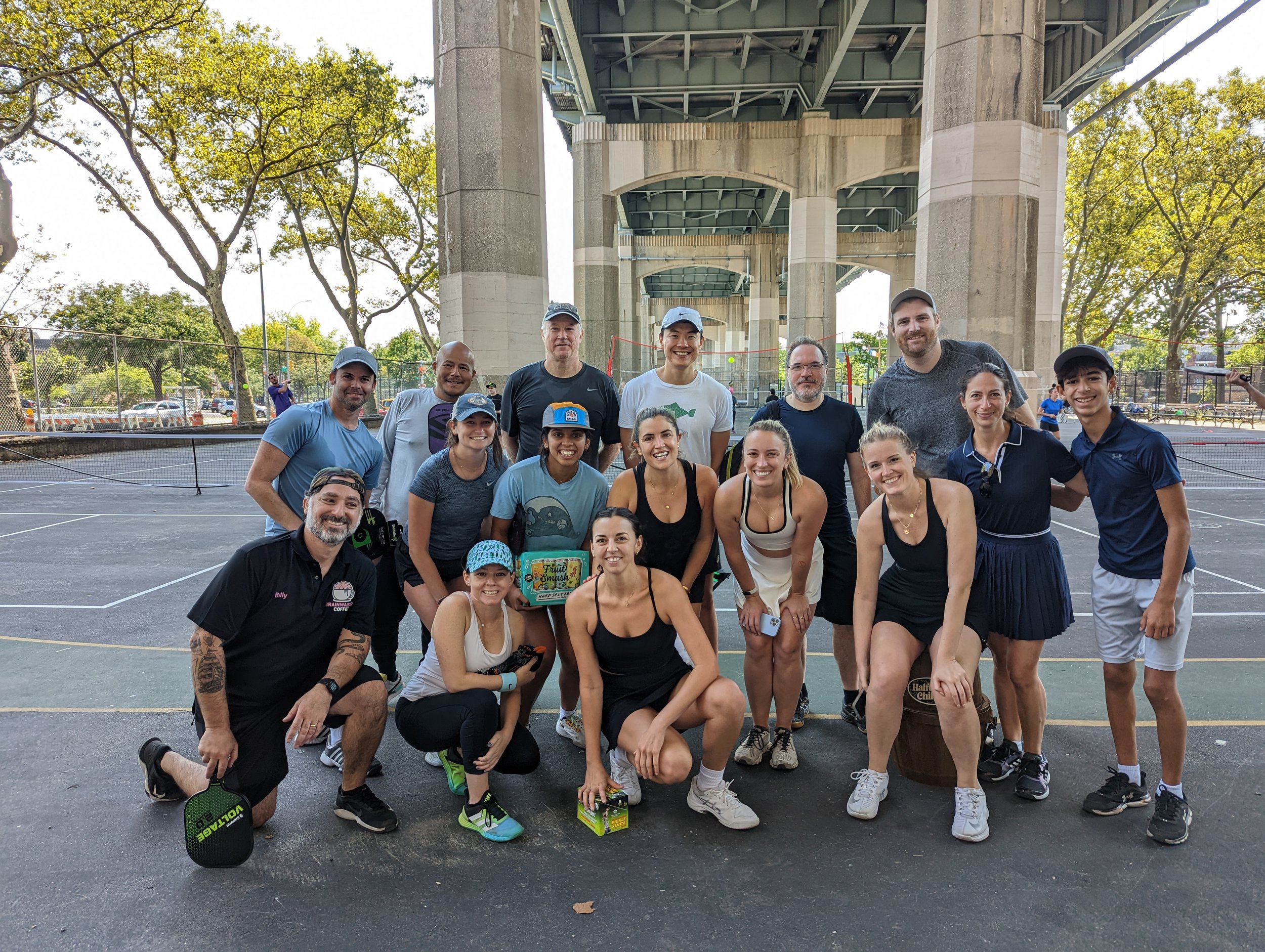Pickleball Courts: America’s New ‘Third Place’?
Pickleball: Helping adults make new friends, one game at a time
Happy new year everyone! 2022 was a huge year for pickleball, as we saw the rise of the the pro tours, the non-stop media coverage, and an explosion of new players. Steve Kuhn, founder of Major League Pickleball as well as the DUPR rating system, optimistically hoped for 40 million players by 2030.
The latest participation report by the APP tour in collaboration, with YouGov, showed that 36.5 million adults played pickleball in the past 12 months, and almost half of those plan to continue to play in the next 6 months. Looks like Steve is going to need to refresh his goal because 40 million is quickly going to be in the rear view mirror.
People often ask, why is pickleball growing so quickly? Common answers refer to its low barrier to entry, diverse player pool, and high fun factor for players with and without athletic backgrounds. While all of these are true, there are specific environmental and social conditions which have made these aspects of the sport particularly important now.
I came across a statistic on Reddit today that said, more than 1 in 10 Americans have no close friends. The share of Americans who have zero close friends has been steadily rising. From 3% of the population in 1991 to 12% in 2021. The share who have 10 or more close friends has also fallen - from 33% to 13% (source is linked).
This statistic is depressing, but not terribly surprising. The rise of technology that allows us to spend longer periods of time further apart from one another while feeling “connected”, and the constant barrage of content fighting for our eyeballs has pushed society in a more isolated direction. Add in political division, a global pandemic, and rising economic hardship and inequality, and it’s no wonder that making and maintaining close friendships has become difficult.
This decline in human connectivity however, is not a recent phenomenon. Before the turn of the millennium, the death of society’s third place was the topic of Ray Oldenburg's The Great Good Place, published in 1989. In the comment section of this reddit thread, one user summarizes the key elements used by Oldenberg to define the ideal third place:
“Neutral Ground: The space is for anyone to come and go without affiliation with a religion, political party, or in-group.
Level Ground: Political and financial status doesn't matter there.
Conversation: The primary purpose of the location is to converse and be social.
Accessible: The third place is open and available to everyone and the place caters to the needs and desires of the community that frequents it.
Regulars: On a nightly or at least weekly basis the same cast of people rotate in and out, contributing to the sense of community.
Unassuming: Third places aren't regal or imposing. They're home-like and serve the function of a home away from home for the patrons.
Lack of Seriousness: Third places are a place to put aside person or political differences and participate in a community. Joking around and keeping the mood light is a big part of the "public house" experience.
Third Place as Home: A third place must take on multiple elements of the home experience including a feeling of belonging, safety, coziness, and a sense of shared ownership. A successful third place has visitors saying ‘this is our space and I feel at home here.’”
It’s easy to see see how pickleball courts serve to meet many, if not all of these requirements. In New York City specifically, the fact that players themselves have created the majority of the courts they play on leans into this idea of shared ownership. Even courts that are eventually created by the Parks Department wouldn’t be possible without the dedication and efforts of the players.
The communities we form around these lines of tape and chalk and portable nets fly in the face of every societal trend. We’ve started to rediscover what it means to have fun and enjoy ourselves and each other without feeling like we’re being taken advantage of by supply and demand. We know that the growth and popularity of the sport will bring in celebrities and moneyed interest, but we believe that in order for pickleball to maintain its magic, it needs to continue to be America’s (and eventually the world’s) new “third place.”

